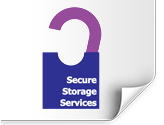Document Storage Tips for New Start-ups Back

If you are new to the world of business, one area you may neglect is sound document organisation and storage. If you do not tackle this important issue, things will get a lot worst for you as your business begins to grow. As your business grows, so too will the volume of documents you generate. When you do not have in place a sound system of document organisation you quickly lose the ability to locate important documents when they are needed. This may result in a poor customer experience, HMRC penalties and (in extreme cases) the closure of your business.
By the time you have finished reading this post you will be armed with several document organisation and storage tips that will benefit both you and your business well into the future.
As the saying goes ‘an organised business is a productive business.’ Ensure your lack of organisation does not hinder your productivity and profitability by getting document organisation right from the get-go!
Here we defined the term 'document' broadly to include paper documents and electronic documents (including email).
Without further ado, we list five of our most powerful document organisation tips for start-ups.
#1. Keep your desk organised
This tip is perhaps the most obvious, yet the vast majority of start-ups will violate this rule within the first six months of being in business.
A disorganised desk is also bad for your mental state of being. We advise you file away all non-essential documentation and recycle items you no longer need. This ensures your desk does not become 'clogged' with paperwork and the like.
A clean, uncluttered workspace means you have access to essential items without having to 'dig' into mounds of unrelated paperwork. Ultimately, this means you will enjoy spending time at your desk throughout the working day.
#2. Go paperless where possible
Whilst the benefits of going paperless are many, we would like to specifically point out that going paperless almost always means getting more organised. This is essentially true when you put in place a sound structure of electronic archiving.
Other benefits of going 'paperless' include:
- Faster retrieval of documents
- Better on the environment
- More space in the office
- Staff gain the ability to access the same document simultaneously
Pro tip: Use a service such as Dropbox. This mean it's easier than ever to access your paperless documents from literally anywhere on the planet with an internet connection. Once your business has grown to a sufficient size, we highly recommend you establish an internal network for storage purposes.
#3. Don't let emails get out of control
As your business grows, so will the volume of emails you receive.
Ensure emails do not get lost in a vacuum. We recommend you set up different email addresses for different purposes. For instance, the email address you give out to customers should not be the same email address you give to your suppliers.
Pro tip: Creating different email addresses for different purposes affords you the ability to set up multiple accounts on Outlook. This automatically segments emails for you. If you do not set up different email accounts, we urge you to set up folders within email accounts and then set up rules to forward emails to these folders based on the senders email address. This ensures important emails are not lost due to overcrowding!
#4. Utilise a bespoke document storage company
When your business is sufficiently developed, we advise you to store important achieve documents at a document storage facility. A document storage company will be able to advise on a bespoke storage package that meets your specific needs. Ensure the document storage company offers a 'scan-on-demand' facility. This allows you to retrieve important documents literally within hours rather than days.
For many small-and-medium-sized businesses, using a document storage company can actually lower the cost of storage and speed up the retrieval process.
#5. Formulate a 'document retention policy' (DRP)
A well thought out DRP ensures you do not keep documents for longer than is necessary. Your DRP must be drawn up according to general and industry-specific laws governing how long you must retain documents for. For instance, documents relating to tax and VAT must typically be retained for several years for the transaction they relate to. Accountants and solicitors are legally required to retain client documents for around seven years following the conclusion of that client’s retainer.
A sound DRP ensures documents are not kept too long and also that important documents are not destroyed too early. This ensures you save money associated with unnecessary document storage and also means you avoid a potential legal penalty for destroying documents too early.
For many documents that are only retained for legal purposes, we highly recommend you store these documents in cheap "deep storage" facility. Here, you will not have the benefit of speedy retrieval but this is not necessary since it is very unlikely you will ever need to retrieve these documents unless you face an action for professional negligence or a tax inspection!
Pro Tip: As part of your DRP, set a 'retention date' for each document. This means documents can be sent for shredding as soon as this date has passed.


 Based in Liverpool and Wirral, we provide document storage, scanning and shredding services nationwide.
Based in Liverpool and Wirral, we provide document storage, scanning and shredding services nationwide.

